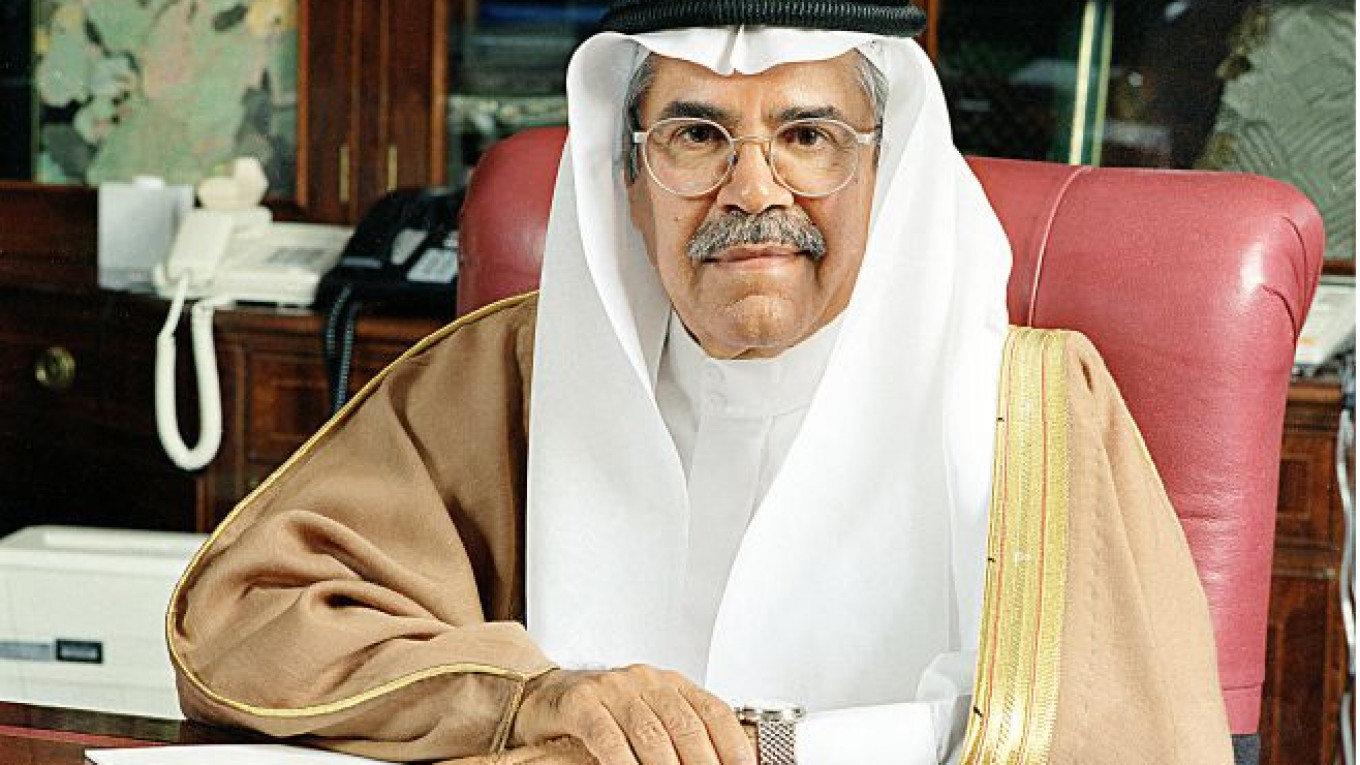Saudi Oil Minister Ali al-Naimi said Monday the world's top oil exporter was willing to supply markets with more crude oil if rising tensions between Russia and the West over Ukraine cause a shortage.
Russia's military intervention on Ukraine's Crimean peninsula and its aftermath in eastern Ukraine have rattled oil markets for the last few months, keeping benchmark Brent futures near $108 a barrel after hitting $112.39 on March 3, the highest this year.
"We are willing to supply any shortage which may arise," Naimi said. He said the kingdom's current output is around 9.6 million barrels per day, or bpd, while it has a capacity of 12.5 million bpd.
Saudi Arabia produced 9.66 million bpd of crude in April, up from 9.566 million bpd in March, an industry source familiar with the matter said. It supplied 9.650 million bpd to the market, up from 9.533 million bpd in March.
Naimi later added that both Saudi Arabia and the producer group OPEC would meet any additional demand for oil.
"Wherever demand is needed, we and other OPEC members will supply," he said.
Potentially adding to the tensions over the breakaway efforts in eastern Ukraine, pro-Moscow rebels declared a resounding victory in a Sunday referendum on self-rule.
Concern over the situation helped support oil markets on Monday. Brent gained 27 cents to $108.16 a barrel by 0740 GMT, while U.S. crude was 3 cents higher at $100.02.
Speaking on the sidelines of a conference in Seoul, Naimi also said $100 a barrel was a fair price for oil.
"One hundred dollars is a fair price for everybody — consumers, producers, oil companies," he said. "It is a fair price. It's a good price."
OPEC Output Target
The minister also said the Organization of the Petroleum Exporting Countries, or OPEC, should maintain its current output cap of 30 million bpd when it comes up for review at the producer group's next meeting in June.
"Supply is highly sufficient, demand is great and the market is fairly stable," Naimi said.
"There is no reason for a change. Absolutely no reason."
At the next OPEC meeting on June 11 a new deal may be reached over the production cap to account for rapidly rising oil output in the U.S. and a number of OPEC members aiming to restore full output after sanctions and civil strife.
Iran and Iraq, OPEC's No.2 and No.3 producers, both feel they are special cases because of production lost to sanctions — Iraq over decades under Saddam Hussein up to 2003 and Iran over the past two years for its nuclear program.
But Naimi ruled out any plans to reduce the kingdom's output to make way for others.
"People like our oil — why reduce?" Naimi said, when asked if the kingdom would cut production to accommodate rising output from other producers.
Naimi also said that total global oil demand was steady.
"Don't worry about individual countries — look at the total," he said.
OPEC in March said world oil demand will increase more than expected in 2014, raising its prediction for a second straight month as U.S. and European economic growth picked up.
In a monthly report, OPEC said global demand will rise by 1.14 million bpd this year, up 50,000 bpd from its previous forecast. It also raised its 2014 projection for global demand for OPEC's crude to 29.7 bpd, up 100,000 bpd from the previous month's report.
See also:
A Message from The Moscow Times:
Dear readers,
We are facing unprecedented challenges. Russia's Prosecutor General's Office has designated The Moscow Times as an "undesirable" organization, criminalizing our work and putting our staff at risk of prosecution. This follows our earlier unjust labeling as a "foreign agent."
These actions are direct attempts to silence independent journalism in Russia. The authorities claim our work "discredits the decisions of the Russian leadership." We see things differently: we strive to provide accurate, unbiased reporting on Russia.
We, the journalists of The Moscow Times, refuse to be silenced. But to continue our work, we need your help.
Your support, no matter how small, makes a world of difference. If you can, please support us monthly starting from just $2. It's quick to set up, and every contribution makes a significant impact.
By supporting The Moscow Times, you're defending open, independent journalism in the face of repression. Thank you for standing with us.
Remind me later.


